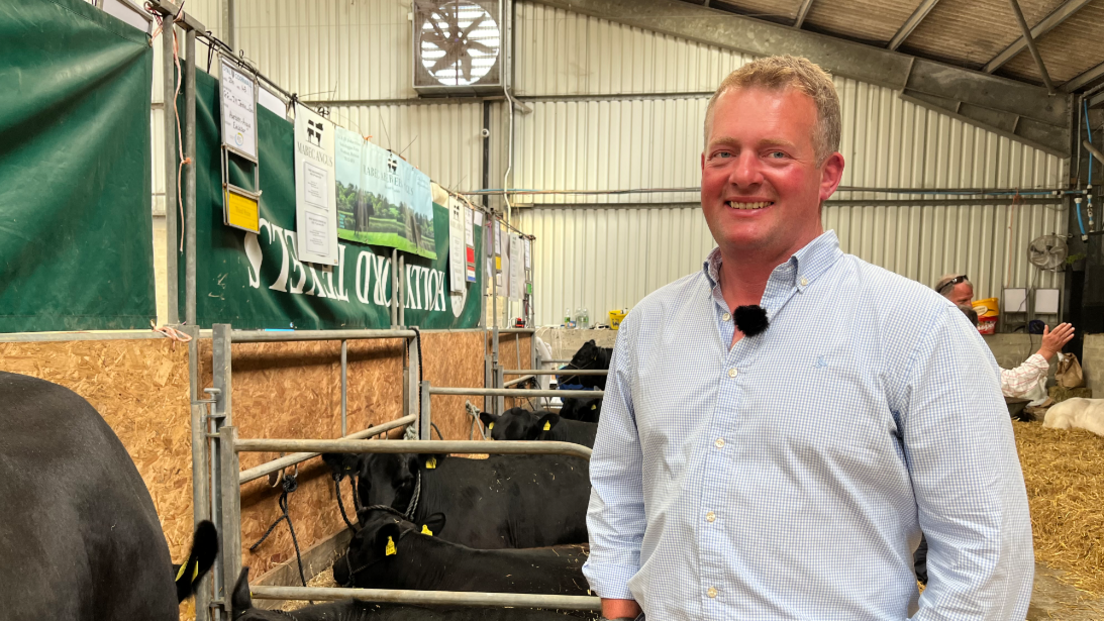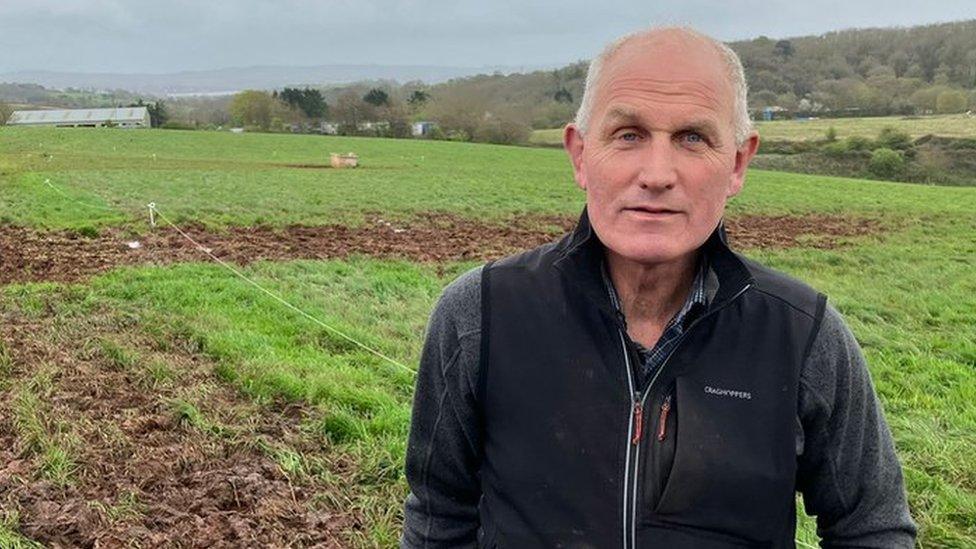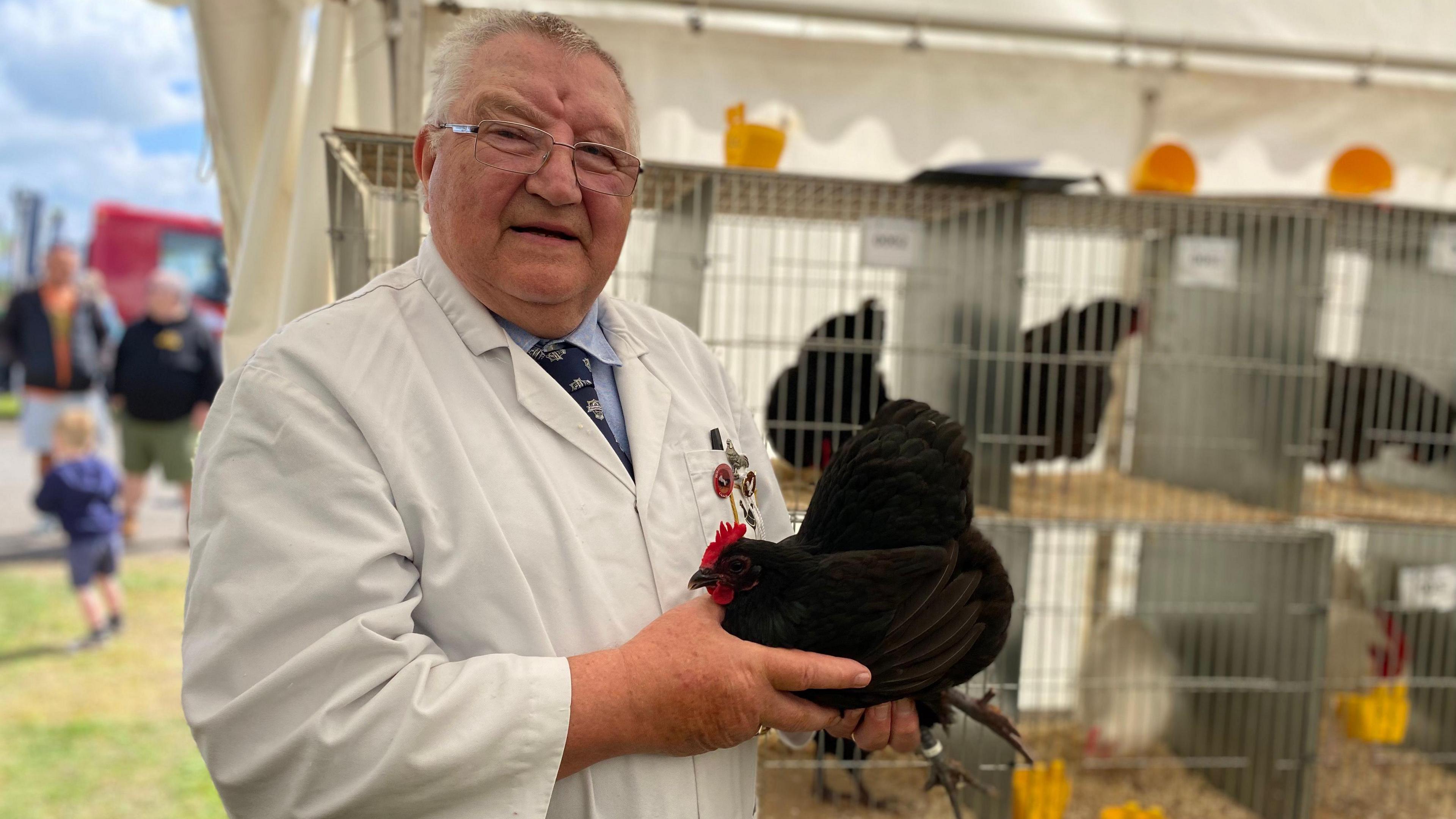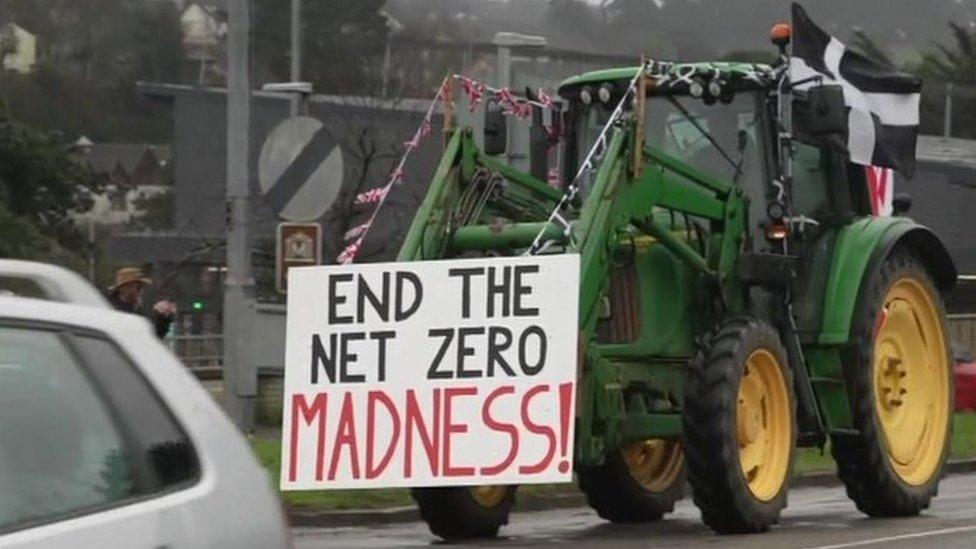Farmers fear for future if cheap imports persist

Cattle farmer Matt Jenkin said the situation was "very, very difficult"
- Published
South West farmers have said the next government needs to level the playing field so they can compete with foreign imports.
The National Farmers' Union (NFU) is also calling for a significant increase in the budget to support new farm subsidy schemes.
The guaranteed subsidies farmers received through the EU's Common Agricultural Policy are being replaced with a domestic system farmers fear is not generous enough.
Farmer James Warren, from St Buryan, Cornwall, said there were "no margins" in the dairy industry.
"We cannot be made to produce food so cheaply," he said.
"We cannot do it - if we work out the hours we do, we're not getting the minimum wage."
'Can't make a living'
Matt Jenkin, a cattle farmer from Wendron, Cornwall, said the situation was "very, very difficult".
"I have a full-time job to make sure we keep it going," he said.
"If we were just relying on the farm it would be very, very difficult to make a living.
"That's getting more and more common. There are some big family farms that just aren’t self-sufficient and you can’t make a living."
Grania Phillips, a beef farmer from Chulmleigh, Devon, added: "I worry about the future of small farms, they are closing down now and if it goes on like this people will just give up.
"If you can’t make a living, what are you going to do?"
Analysis by Martyn Oates, BBC South West political editor
The last few years have been a turbulent time for the farming community.
Much of this has been due to Brexit and way the government chose to exercise its new powers outside the EU.
Farmers say they have struggled to find the people to pick their crops under the government's new immigration rules.
They also are frustrated with the domestic system of farm subsidies, while the government's new-found freedom to make its own trade deals led to agreements with Australia and New Zealand, which farmers fear could see them undercut by cheap imports.
Inflated feed, fertiliser and energy costs and prolonged wet weather have added to their woes.

Just a few days before the election the Conservative government produced what it described as a "blueprint to grow the UK fruit and vegetable sector" and said it would appoint a new "supply chain adjudicator" to make sure farmers get fair prices.
The Seasonal Agricultural Workers' Scheme – allowing farmers access to a limited amount of foreign labour – was also extended by five years.
Labour said it would make the new subsidy system work better and seek a new veterinary agreement with the EU to cut costs and red tape for food exports.
They also said it would ensure at least half of all food in hospitals, schools and prisons is British.
The Liberal Democrats promised to inject a further £1bn into the farming budget to support domestic food production.
The party said it would also pursue a veterinary agreement and alignment of standards with the EU, while also pledging to renegotiate those controversial Australian and New Zealand trade deals.
Follow BBC Cornwall on X (formerly Twitter), external, Facebook, external and Instagram, external. Follow BBC Devon on X (formerly Twitter), external, Facebook, external and Instagram, external. Send your story ideas to spotlight@bbc.co.uk, external.
Related topics
- Published5 April 2024

- Published6 June 2024

- Published16 March 2024
